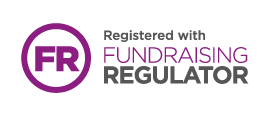
Public sector organisations are ill-equipped to address the risks of modern slavery and climate change in their operations and supply chains, new research warns.
Researchers from leading universities, in partnership with Unseen UK and London Universities Purchasing Consortia, find public sector institutions, a driving force in our economy, funding hospitals to schools to infrastructure, lack the resources and legal mandate to tackle these hidden risks.
Says Lauren Saunders, Head of Policy and Research at Unseen, and report contributor: “It is important that public bodies purchase items and services in a way that does not harm people or the planet.
“Through this research we want to put a stop to companies cutting harmful corners to save money, only to then profit more from taxpayers’ money. We are calling on the Government to do more to enforce regulations and ensure companies operate by fair and ethical standards.”
Check out a summary of all the key findings and actionable steps set out in the report below.

Why this research matters: unmasking hidden costs in public procurement
As we move towards a sustainable future, understanding the links between climate change and modern slavery becomes crucial. This urgency stems not just from environmental concerns, but also from the human cost borne by vulnerable communities.
Climate impacts, driven by human actions, disrupt primary industries like farming and fishing. This forces affected communities to migrate in search of new livelihoods, often leaving them exposed and susceptible to exploitation.
Existing research has highlighted how this climate-driven migration is key driver behind human trafficking, weaving vulnerable individuals into a complex cycle of further exploitation and environmental harm.
Public sector organisations play a vital role in this equation.
Public procurement, the process by which governments and public bodies acquire a vast array of goods and services – from healthcare equipment to food and infrastructure – are not immune to these intertwined risks.
Yet, how public organisations tackle these risks and the potential of public procurement to encourage responsible practices remains largely unexplored.
Unlike private companies, they have a special responsibility. Their purchases are funded by the taxpayer, demanding not just value, but ethical standards.
As a result, this intricate web of human and environmental exploitation demands action. Public procurement also offers a powerful lever to drive systemic change, not just within the public sector, but across private supply chains.
This research seeks to address this overlooked gap, empowering governments, public buyers, and suppliers to uncover vulnerabilities and ensure responsible spending.

8 vulnerabilities to modern slavery and climate risks in public procurement
The research sheds light on crucial shortcomings in public procurement:
- Lack of legal mandate and resources: Absence of clear legal obligations and dedicated resources leaves public organisations struggling to prioritise and effectively address modern slavery and climate change in their supply chains.
- Blind spots in data platforms: Public buyers rely heavily on data platforms for modern slavery assurance, but lack in-depth engagement to understand what risks are actually assessed. This leads to a false sense of security, masking potential risks throughout supply chains.
- Unprepared for vulnerable individuals: When encountering potential modern slavery cases, public organisations struggle to navigate existing support mechanisms to handle them appropriately. This lack of awareness hinders effective intervention and protection.
- Weak supplier requirements: Public purchasing agreements barely hold suppliers accountable for responsible practices, allowing unethical practices to persist. Existing requirements, like complying with the Modern Slavery Act, are easily met even by companies with poor records.
- No red cards: Companies with known problems like poor labour rights can still win public contracts. This lack of consequence encourages unethical practices to continue and leaves vulnerable workers unprotected. It highlights the critical need for harsher punishments like disqualification and enforcement mechanisms.
- Underutilised monitoring mechanisms: Few buyers utilise existing worker rights monitoring tools like Electronics Watch, despite its low effort and high impact potential for risk mitigation. This missed opportunity limits transparency and worker protection.
- Unclear sustainability commitments: Public buyers are often unclear about which sustainability and ethical issues are addressed within purchasing frameworks. This lack of transparency undermines trust and hinders responsible procurement efforts.
- Stronger Consortia: Public buying groups could significantly improve their impact by adopting supplier assurance programmes like London Universities Purchasing Consortium’s Supplier Due Diligence Tool. This would strengthen ethical practices and increase buyer confidence in framework agreements.

Actionable steps for ethical and sustainable public procurement
This report outlines crucial, actionable steps for policymakers, public buyers, and suppliers:
For the UK Government:
- Mandate action: Enforce mandatory legal obligations and dedicated resources for public bodies to tackle modern slavery and climate threats in their supply chains.
- Prioritise monitoring: Encourage active monitoring of factories, like through Electronics Watch, especially for IT equipment. Make this a requirement for buying IT through frameworks.
- Reward responsible sourcing: Introduce separate, stringent requirements for modern slavery and climate action within public tendering. Develop scoring systems that reward suppliers who actively take steps to address modern slavery and climate risks.
- Clear guidelines and modern slavery training: Create consistent procedures for handling potential modern slavery cases to go alongside the Government’s Modern Slavery Assessment Tool45. Provide mandatory training to all public sector staff on how to identify modern slavery and respond effectively.
- Disqualify unethical practices: Strengthen penalties and disqualify firms with poor performance on these issues from public contracts but ensure those firms who had taken positive steps to address discovered issues improvement are not unduly punished.
For public sector purchasing consortia:
- Enforce framework conditions: Work with Electronics Watch to automatically share information on monitored suppliers when buying IT through frameworks.
- Champion transparency: Clearly communicate responsible procurement aspects of each new and renewed framework agreement.
- Prioritise monitored suppliers: Develop a system to identify and prioritise buying from suppliers whose factories have already been audited by reliable organisations.
For buyers and suppliers in the public sector:
- Go beyond data: Actively manage modern slavery risks beyond relying on data platforms. Work with your consortium and data platforms to understand and fill any gaps in risk management.
- Invest in modern slavery training: Equip staff to identify and respond to potential cases of modern slavery.
- Invest in Consortia: Increase funding for public procurement consortia to strengthen their work on managing modern slavery and related risks for members.
- Long-term supplier partnerships: Consider building direct, long-term relationships with responsible suppliers for faster, evidence-based improvements.
Download the full report for detailed recommendations and how to implement them.
About the research
The research was conducted by a team from the University of Sussex, University of Bath, University of the West of England, Bristol, in partnership with Unseen UK and the London Universities Purchasing Consortium.
The project was funded by the Modern Slavery Policy and Evidence Centre, which in turn is funded and supported by the UK’s Arts and Humanities Research Council.
Research involved over 70 hours of interviews and focus groups with public buyers and their sellers and risks management data platforms, as well as input from Unseen’s Survivor Consultant Group, including people with lived experienced of modern slavery.


